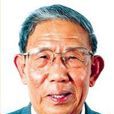劉以訓,1936年5月5日出生於山東安丘,生殖生物學家,中國科學院院士,中國科學院動物研究所研究員、博士生導師。
1963年劉以訓畢業於復旦大學生物系內分泌專業;1966年畢業於中國科學院研究生院;1974年至1975年在英國帝國腫瘤研究所進修;1984年至1986年在美國加州大學生殖醫學系高訪學者;1988年至1992年在瑞典Umea大學細胞分子生物學系客座訪問教授;1999年當選為中國科學院院士。
劉以訓主要從事生殖生理研究。
基本介紹
- 中文名:劉以訓
- 國籍:中國
- 民族:漢族
- 出生地:山東安丘
- 出生日期:1936年5月5日
- 職業:教育科研工作者
- 畢業院校:中國科學院研究生院
- 主要成就:1999年當選為中國科學院院士
- 性別:男
人物經歷,主要成就,科研成就,榮譽表彰,社會任職,人物評價,
人物經歷
1936年5月5日,劉以訓出生於山東安丘。
1963年,劉以訓畢業於復旦大學生物系內分泌專業。
1966年,劉以訓畢業於中國科學院研究生院。
1973年,劉以訓從北京語言學院英語班結業。
1974.4-1975.12,劉以訓前往英國帝國腫瘤研究所進修。
1984.3-1986.12,劉以訓美國加州大學生殖醫學系高訪學者。
1988.9-1992.10,劉以訓瑞典Umea大學細胞分子生物學系客座訪問教授。
1995.11-2001.11,劉以訓英國Leicester大學客座訪問學者和榮譽教授
1999年,劉以訓當選為中國科學院院士。
1999.7-2003.9,劉以訓作為中國中心主任參加WHO六國國際胚胎植入研究中心合作研究。
主要成就
科研成就
- 科研綜述
劉以訓在卵巢顆粒細胞和膜細胞的相互作用、哺乳動物排卵機制研究中作出了重要貢獻,提出了排卵機制的新學說。建立了靈長類動物模型系統,研究了精原幹細胞分化和精子發生的分子機制,克隆了七個新的基因並初步探討了它們的生理功能。
- 學術論著
劉以訓發表論文140餘篇(其中在《中國科學和國外一流刊物》上有近80篇),國內外廣泛引用。
代表論著
1.Expression and Regulation of Plasminogen Activators, Plasminogen Activator Inhibitor type-1 and steroidogenic acute regulatory protein in the Rhesus Monkey CorpusLuteum. Endocrinology,2003,144:3611-3617Corresponding author
2.Dedifferentiation of Adult monkey Sertoli cells Through Activation of ERK1/2 Kinase Induced by Heat treatment ?Endocrinology. 2006, 147(3):1237-1245, Corresponding author
3.Contraceptive action of a GnRH II analog in the rhesus monkey ?J. Clin Endocrinol and Metab 2004, 89(9): 4513-4520 Co-corresponding author
4.Acrosome formation-associated factor is involved in fertilization .Fertil Steril. 2009 Mar 12. [Epub ahead of print] PMID: 19285662 [PubMed - as supplied by publisher]Corresponding author
5.InhibinA Inhibits Follicle Stimulating Hormone (FSH) Action by Suppressing its Receptor Expression in Cultured Rat Granulosa Cells ?Mol Cell Endocrinology 2009, 298 :48-56 Corresponding author
6.Expression and regulation of stanniocalcin 1 and 2 in rat uterus during embryo implantation and decidualization. Reproduction. 2006, 131(6):1137-49. Corresponding author
7.Afaf, a novel vesicle membrane protein, is related to acrosome formation in murine testis. FEBS Lett. 2006 11: 2465-2486 Corresponding author
8.Interaction and signal transduction between oocyte and samatic cells in the ovary. Front Biosci. 2007 May 1; 12:2782-96.First Author
9.Involvement of plasminogen activator and plasminogen activator inhibitor type 1 in spermatogenesis, sperm capacitation, and fertilization. Semin Thromb Hemost. 2007, 33(1): 29-40. First Author
10.Localization of plasminogen activator and inhibitor, LH receptor, androgen receptor and inhibin subunits in monkey epididymis Mol Human Reproduction 1997,11:945-952.Corresponding author
11.Expression of plasminogen activator and inhibitor, urokinase receptor and inhibin subunits in rhesus monkey testes. Mol Human Reprod. 1997, 3:223-231 Corresponding author
12.Preliminary studies on the role of plasminogen activator in seminal plasma of human and rhesus monkey. Mol. Human Reprod. 1996 ,2: 99-104 Corresponding author
13.Hormonal regulation of tissue-type plasminogen activator and plasminogen activator inhibitor type-1 in cultured monkey Sertoli cell. Human Reproduction, 1995 10:719-727, First Author
14.Activation of p38 MAPK pathway by FSH regulates steroidogenesis in granulosa cells differentially ?J. Endocrinol 2005, 186(1):85-96 Corresponding author
15.The possible involvement of tissue type plasminogen activator in luteolysis of rhesus monkey. Human Reproduction 1993, 8:1640-1644Corresponding author
16.Tissue-type Plasminogen Activator and Its Inhibitor Plasminogen Activator Inhibitor Type 1 Are Coordinately Expressed during Ovulation in the Rhesus Monkey Endocrinology 2004: 145:1767-1775 First Author
17.Heat treatment induces liver receptor homolog-1 expression in monkey and rat Sertoli cells.?Endocrinology. 2007 148 (3):1255-1265.Corresponding author
18.Effect of heat stress on expression of junction-associated molecules and upstream factor AR and WT1 in monkey Sertoli cells . Endocrinology 2008 Oct;149(10):4871-82. Corresponding author
19.Development of population and reproductive medicine in China 2003:266-283 ?in Science Progress in China, Eded by Lu Yongxiang, Science press 2003? First Author (English version)中國人口與生殖醫學的發展 2003:171-183 路甬祥主編,江澤民作序: 中國科學進展,科學出版社,2003年,北京(中文版) First Author (Chinese version)
20.VEGF, bFGF and their receptors in the endometrium of rhesus monkey during menstrual and early pregnancy Mol Reprod Develop2004, 68 : 456-462Corresponding author
21.Involvement of molecules related to angiogenesis, proteolysis and apoptosis in implantation in rhesus monkey and mouse Contraception (Review paper) 2004,71(4):249-62, First Author
- 承擔項目
| 項目時間 | 項目名稱 | 項目來源 |
|---|---|---|
2006.10-2011.10 | 熱激影響精子發生的分子基礎和相關功能基因的研究(2006CB504000) | 科技部“973”項目 |
2006.10-2011.10 | 卵子成熟,排放的分子基礎(2006CB944001) | 科技部重大科學研究 |
2006.12-2010.12 | 誘發精細胞凋亡的分子基礎及其相關功能基因的研究(KSCX2-YW-R-55) | 科學院創新項目 |
2003.12-2007.12 | 精子發生與成熟的分子機理的研究(30230190) | 自然基金重大項目 |
2003.1-2007.12 | 卵泡顆粒細胞分化的信息基礎研究(90208025) | 自然基金重大項目 |
2007.1-2009.12 | 利用條件性組織特異性基因減活法研究Trs4在精子發生中的功能(30618005) | 香港資助局/自然基金聯合資助項目 |
2006.1-2008.12 | 促乳素和消炎痛抑制大鼠和小鼠排卵的信號通路和分子機制研究(30570921) | 自然基金面上項目 |
2004.1-2006.12 | 不同激素介導哺乳動物排卵的分子基礎研究(30370200) | 自然基金面上項目 |
2007.1-2009.12 | Wt1 基因對性別決定基因Sox9表達調控機制的研究(30600311) | 自然基金面上項目 |
2007.1-2009.12 | 精子尾部特異新蛋白TSNHE 和Rsh12功能的研究(5073032) | 北京自然科學基金項目 |
- 科研成果獎勵
| 時間 | 項目名稱 | 獎勵名稱 |
|---|---|---|
1984年 | 孕酮、雌激素和睪酮放免疫藥盒的研製 | 中國科學院科技成果二等獎(第一完成人) |
1985年 | 文昌魚生殖生理 | 中國科學院重大科技成果二等獎(第二完成人) |
1986年 | 促黃體素釋放激素及類似物對生殖調控的機理 | 中國科學院自然科學二等獎(第二完成人) |
1992年 | 卵巢細胞間的相互作用及其tPA和PAI-1基因表 達與排卵的關係 | 中國科學院自然科學二等獎(第一完成人) |
1994年 | 性甾體激素及其受體功能和胚泡著床關係的研究 | 中國科學院自然科學二等獎(第一完成人) |
1997年 | 排卵機理的研究 | 中國科學院自然科學一等獎(第一完成人) |
1997年 | tPA和PAI-l在調節黃體萎縮和精子發生功能的研究 | 中國科學院自然科學二等獎(第一完成人) |
2006年 | 尋找有效靶點發展男女避孕方法的基礎理論研究 | 國家人口與計生委科技成果二等獎(第一完成人) |
榮譽表彰
2006年獲中華人口與計畫生育科學技術獎,國家人口與計生委
2005年獲第五屆中華人口獎,國務院,宋慶玲基金會,科技部和國家人口與計生委
社會任職
華中科技大學雙聘院士;劍橋大學著名刊物“Human Reproduction”編委,英文刊物《Develo pmental and Reproductive Biology》副主編,中國動物學會生殖生物學會理事長,中國生理學會和比較內分科學會理事,全國內分泌消化生殖及代謝專業委員會副主任,國家計生委專業委員會委員。生理學報等六刊編委,生殖生物學國家重點實驗室學術委員會主任;中國科學院研究生院教授;中國動物學會物生殖生物學會理事長;中國科學院動物研究所性腺生物學研究組組長。
人物評價
劉以訓在性腺功能的調節機理方面作出了突出貢獻。

